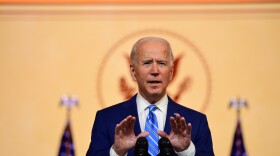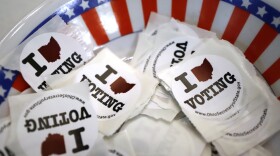
Brett Neely
Brett Neely is an editor with NPR's Washington Desk, where he works closely with NPR Member station reporters on political coverage and edits stories about election security and voting rights.
Before coming to NPR in 2015, Neely was a reporter for Minnesota Public Radio based in Washington, where he covered Congress and the federal government for one of public radio's largest newsrooms. Between 2007 and 2009, he was based in Berlin, where he worked as a freelance reporter for multiple outlets. He got his start in journalism as a producer for the public radio show Marketplace.
Neely graduated from Occidental College in Los Angeles. He also has a master's degree in international relations from the University of Chicago. He is a fluent German speaker.
-
Why suffer bug bites when you can stay inside and READ? NPR staffers suggest a trio of non-fiction: "The Showman," "Invisible Rulers," and "the Threshold of Dissent."
-
Anyone who's online and shares information plays some role in shaping whether falsehoods gain traction. Here's some advice on how to share responsibly.
-
Pro-Trump Republicans in Georgia are circulating a touchscreen voting machine conspiracy theory. The conspiracy theory comes from concerns from Democrats.
-
After an election that saw record voter turnout, some GOP state lawmakers are proposing a wave of new voting laws that would effectively make it more difficult to vote in future elections.
-
President-elect Joe Biden called on Americans to unite this holiday season, amid the pandemic. Minutes earlier, President Trump repeated baseless claims about the election being "rigged."
-
No one in the immediate ranking of officials who might need to succeed the president has tested positive.
-
The governor ultimately turned to a state public health official to issue an order shutting down the primary after a judge said postponing the vote at the last minute would set "a terrible precedent."
-
The majority does not rule in the Senate, and that has some Democrats — including presidential candidate Elizabeth Warren — pushing to change how things work. Others warn that could backfire.
-
Lowering gun violence was one issue on which Democratic presidential candidates spoke with nearly one voice. But researchers question the effectiveness of some of the Democrats' proposals.
-
Even as public distaste for gerrymandering led to a wave of successful ballot initiatives this fall, plenty of lawmakers are still trying to make sure they control how political boundaries are drawn.









